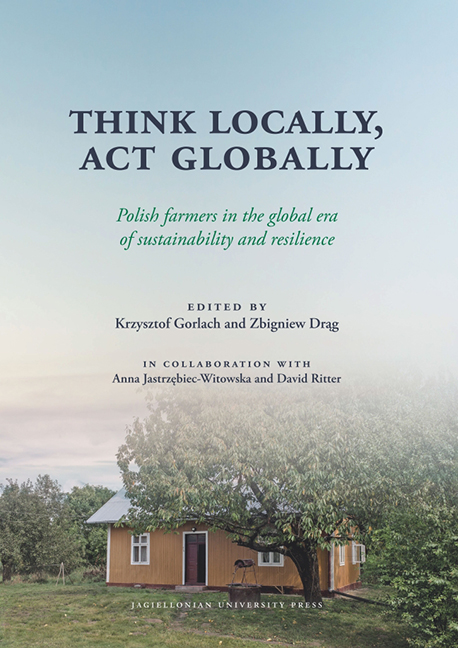Book contents
- Frontmatter
- Contents
- Family Farming: A foreword
- An Introductory Letter from the First Editor: Where the horses, cows, and even cats had their own names
- Part One Theoretical and Methodological Considerations
- Part Two Changes in the Post-Communist Transformation
- Part Three Diversification of Farmers’ Strategies
- Part Four Some Independent Studies
- Conclusion: Some Final Remarks from the First Editor
- Afterword: Renewing a Sociology of Agriculture
- Biograms
Chapter Two - Mixed Methodologies, Sustainable Analyses
Published online by Cambridge University Press: 16 July 2022
- Frontmatter
- Contents
- Family Farming: A foreword
- An Introductory Letter from the First Editor: Where the horses, cows, and even cats had their own names
- Part One Theoretical and Methodological Considerations
- Part Two Changes in the Post-Communist Transformation
- Part Three Diversification of Farmers’ Strategies
- Part Four Some Independent Studies
- Conclusion: Some Final Remarks from the First Editor
- Afterword: Renewing a Sociology of Agriculture
- Biograms
Summary
Introductory Remarks
The second chapter of this monograph is devoted to methodological issues. Considering the context, readers should be reminded that sustainable farm development is at the center of this publication's academic reflection. It should also be recalled that sustainable development is not limited to the effects of economic changes but also involves environmental (mostly related to resources) and social (equality and inequality issues) dimensions. This might lead to the statement that the development process has a rather multifaceted character. Therefore, its analysis must be more complex, and take into consideration various factors, including psychological references to the actors taking part in these processes. A similar way of thinking may be applied to the methodology used in sociological studies. The use of various methods and research techniques can provide a more multidimensional picture of the studied reality. Thus, mixed methodologies can provide a better means to observe analyzed phenomena and social processes from various angles and this, in our view, might be more conducive to sustainability analyses. Such analyses are the main goal of our project and this monograph.
Chapter 1 essentially contains the draft of the theoretical concept to which the entire publication is devoted to. This chapter mostly deals with the methodological consequences of theoretical resolutions described in the previous chapter, which are important for the methods of academic research. The crucial point of reflection referred to the methodological work of Andrew Abbot with its central premise of advocating the reversal of the approach to the relation between the global and local dimensions of social life, an approach widespread in academic literature. As emphasized by Abbott (2004, p. 7): “Switching questions is a powerful heuristic move.” Such a move was taken when the main slogan of the entire publication was formulated by changing the order—and thus, the meaning—of the popular statement “think globally, act locally” to “think locally, act globally.” This allowed for several important issues to be addressed, which became the basis for various analyses presented in this volume.
Information
- Type
- Chapter
- Information
- Think Locally, Act GloballyPolish farmers in the global era of sustainability and resilience, pp. 95 - 148Publisher: Jagiellonian University PressPrint publication year: 2021
